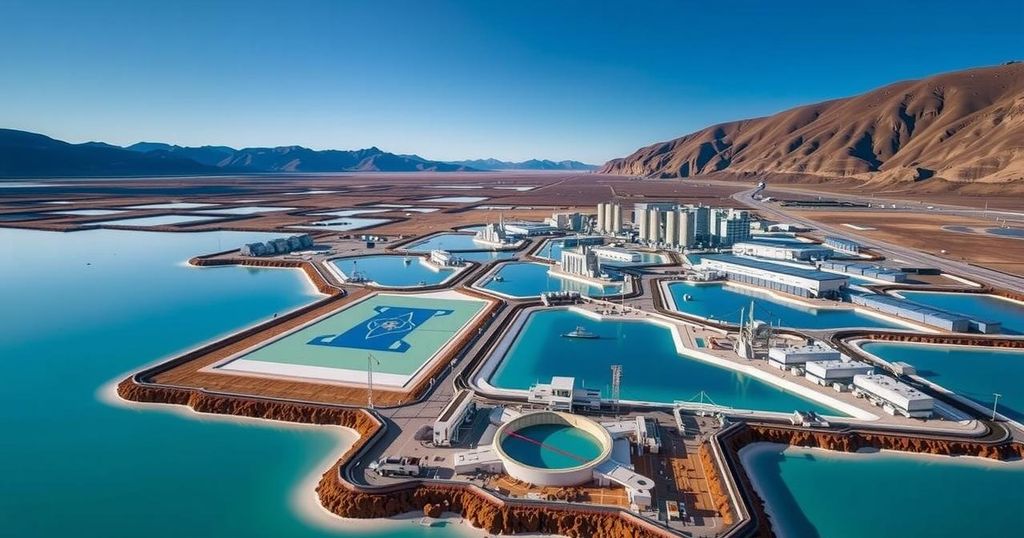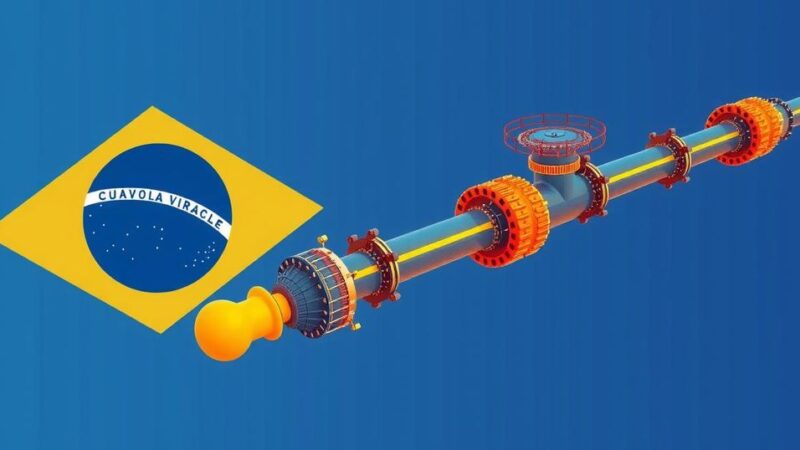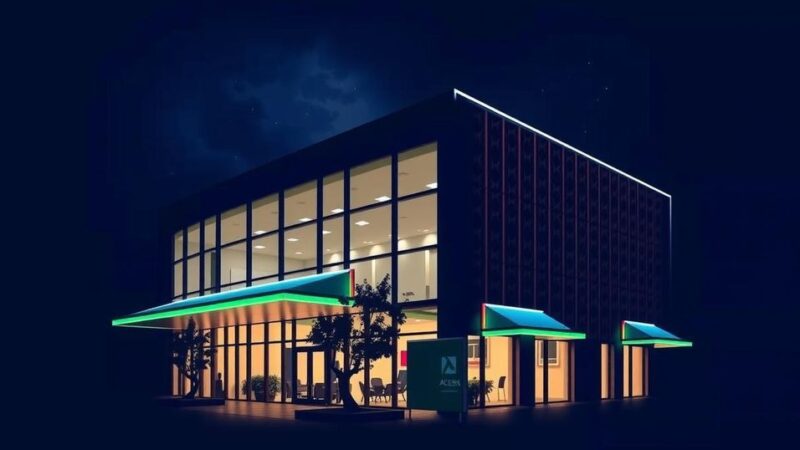Bolivia has signed a $1 billion deal with China’s CBC to construct two lithium carbonate plants in Uyuni salt flats. The facilities will have an output of 10,000 and 25,000 tons annually, positioning Bolivia as a key player in the lithium market, which is essential for electric vehicle batteries. This follows an existing agreement with Russia and further negotiations with Chinese firms.
On November 27, 2024, Bolivia announced the signing of a substantial $1 billion agreement with China’s CBC, a subsidiary of CATL, the leading lithium battery producer globally. The deal is set to establish two lithium carbonate production facilities in the saline expanse of the Uyuni salt flats, with capacities of 10,000 tons and 25,000 tons annually. This initiative is part of Bolivia’s broader strategy to harness its vast lithium reserves, which are essential for the burgeoning electric vehicle and consumer electronics markets.
The significance of lithium, often referred to as “white gold,” arises from its critical role in battery manufacturing for electric vehicles and electronic devices. Bolivia boasts the largest lithium reserves in the world, positioning the nation as a potentially influential player in the global lithium market. The current deal follows a previous agreement with Russia’s Uranium One Group and signals ongoing negotiations with other Chinese firms, indicating Bolivia’s strategy to capitalize on its resources in response to increasing global demand.
The recent agreement between Bolivia and China’s CBC underscores Bolivia’s ambition to leverage its extensive lithium deposits. By establishing production plants, Bolivia aims to enhance its position in the global lithium market, potentially impacting international pricing. As Bolivia continues to forge partnerships, the nation’s influence in the realm of lithium production is poised for significant growth.
Original Source: jordantimes.com






